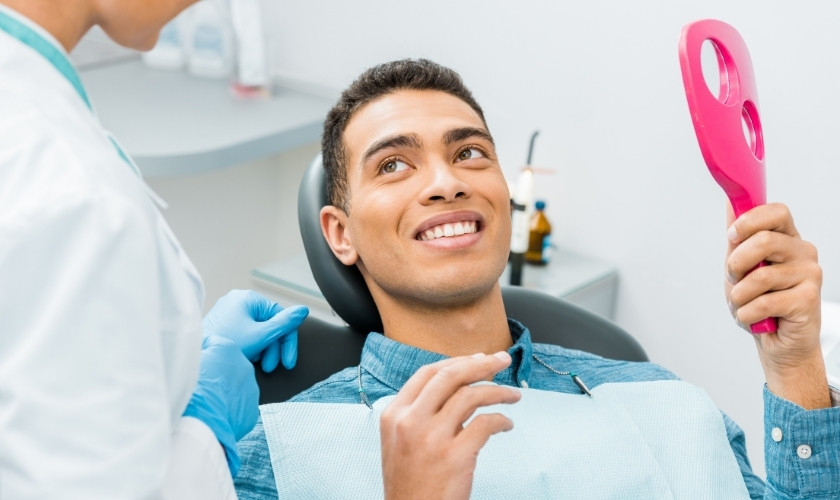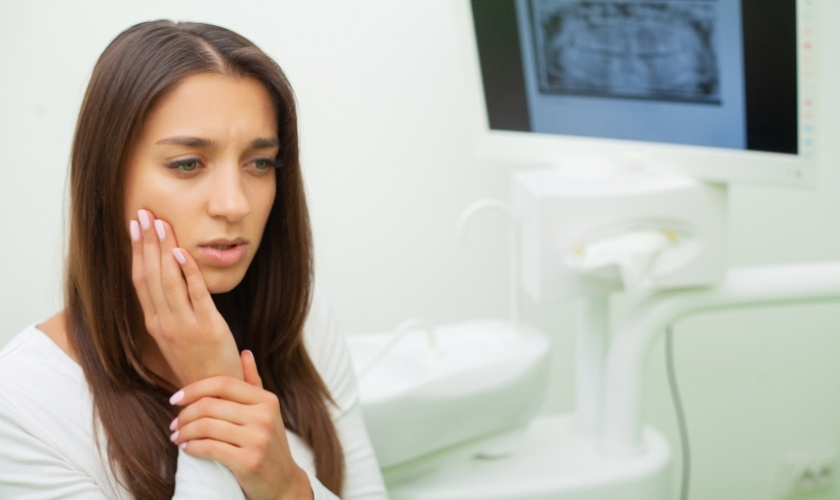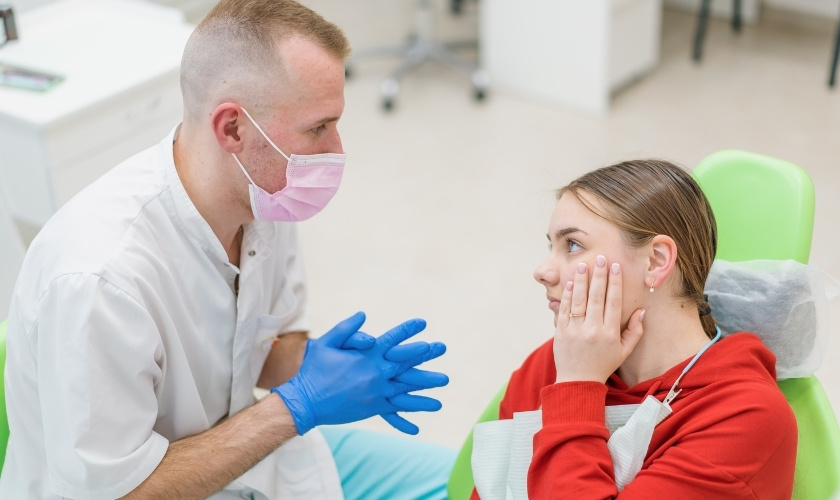
Cracked teeth can be alarming, but don’t panic just yet!
Whether it’s from a sudden impact or just wear and tear, a cracked tooth requires swift action to prevent further damage. The clock is ticking, and your next steps are crucial. Understanding how an emergency dentist can address the issue quickly and effectively can make all the difference in your recovery.
An emergency dentist is specially trained to handle these urgent situations with precision. From diagnosing the severity of the crack to providing immediate relief, they offer solutions tailored to your needs.
Ready to dive into how they can save your smile and get you back on track?
Keep reading to learn how these dental experts tackle cracked teeth and what you can do in the meantime.
Cracked Teeth: Causes and Symptoms
Cracked teeth can occur for various reasons, each with its own set of symptoms. Here’s a breakdown of common causes and signs you might notice:
Causes of Cracked Teeth
- Trauma: An injury from a sports accident or a fall can cause a crack.
- Chewing Hard Foods: Biting into hard foods like ice or candy can weaken your teeth.
- Bruxism: Grinding or clenching your teeth, often due to stress, can lead to cracks.
- Large Fillings: Extensive fillings can compromise the tooth’s integrity over time.
Symptoms to Watch For
- Pain While Chewing: Discomfort or pain when biting down is a common sign of a crack.
- Sensitivity: Sudden sensitivity to hot or cold foods and drinks might indicate a crack.
- Visible Cracks: Sometimes, you may see a visible line or crack in the tooth’s surface.
- Swelling: Swelling of the gums near the affected tooth can also occur.
If you notice any of these symptoms, it’s essential to consult a dentist promptly to avoid further damage.
Immediate Steps to Take After a Tooth Crack
Knowing what to do immediately after cracking a tooth can significantly impact your recovery. Here are some crucial steps to follow:
1. Rinse Your Mouth
- Use warm water to rinse your mouth gently. This helps to remove debris and soothe the affected area.
2. Apply a Cold Compress
- Place a cold compress on the outside of your cheek near the cracked tooth to reduce swelling and numb the pain.
3. Avoid Certain Foods
- Steer clear of hot, cold, or hard foods that might aggravate the crack or cause additional pain.
4. Take Over-the-Counter Pain Relief
- Use ibuprofen or acetaminophen to manage pain until you can see a dentist. Avoid aspirin, as it can cause bleeding.
5. Contact Your Dentist
- Call your dentist or an emergency dental clinic right away. An emergency dentist in Fort Worth can provide prompt care and evaluation.
Following these steps will help manage pain and prevent further damage until professional treatment is available.
Diagnosis and Treatment Options for Cracked Teeth
When you visit an emergency dentist, they’ll use various methods to diagnose and treat a cracked tooth effectively.
Diagnosis
- X-rays: Your dentist will take X-rays to determine the extent of the crack and assess any underlying damage.
- Visual Examination: They will examine your tooth for visible cracks and check for signs of damage.
- Pulp Testing: Testing the tooth’s pulp can help identify if the crack has affected the nerve.
Treatment Options
- Bonding: For minor cracks, your dentist may use a resin to seal and strengthen the tooth.
- Crowns: If the crack is more severe, a crown may be placed to cover and protect the tooth.
- Root Canals: If the crack extends to the nerve, a root canal might be necessary to remove damaged tissue and save the tooth.
- Extraction: In cases where the tooth is too damaged to repair, extraction might be the only option.
Your dentist will recommend the best treatment based on the crack’s severity and the tooth’s overall condition.
When to Seek Immediate Help?
Knowing when to seek help can make a significant difference in your recovery. Here are scenarios where immediate dental care is crucial:
1. Severe Pain
- If you experience intense pain that doesn’t subside with over-the-counter medication, seek emergency dental care.
2. Visible Cracks
- If the crack is severe or extends into the gum line, prompt treatment is necessary to avoid infection.
3. Swelling or Bleeding
- Persistent swelling or bleeding around the cracked tooth indicates a possible infection that requires immediate attention.
4. Difficulty Eating or Speaking
- If the crack affects your ability to eat or speak, contact your dentist as soon as possible for treatment.
Quick action in these situations can prevent complications and ensure effective treatment.
Preventing Future Cracks: Tips for Stronger Teeth
After addressing a cracked tooth, it’s essential to focus on preventing future issues. Here are some effective tips:
1. Use a Mouthguard
- If you play contact sports or grind your teeth at night, a mouthguard can help protect against cracks.
2. Avoid Hard Foods
- Be cautious when eating hard foods like nuts or ice. Cut food into smaller pieces and avoid biting down on hard objects.
3. Maintain Good Oral Hygiene
- Brush and floss regularly to keep your teeth healthy and reduce the risk of damage.
4. Address Teeth Grinding
- If bruxism is a problem, discuss stress management techniques or use a night guard with your dentist.
5. Regular Dental Checkups
- Visit your dentist regularly for checkups and cleanings to catch and address any potential issues early.
By following these preventive measures, you can help ensure your teeth remain strong and less susceptible to future damage.
Cracked teeth can be concerning, but knowing how to handle the situation and when to seek help is crucial. By taking immediate steps to manage pain and protect your tooth, you can prevent further damage and ensure effective treatment. Regular dental visits and preventive care will help maintain your oral health and minimize the risk of future issues. If you experience a cracked tooth, act swiftly to consult with a professional and restore your smile with confidence.




